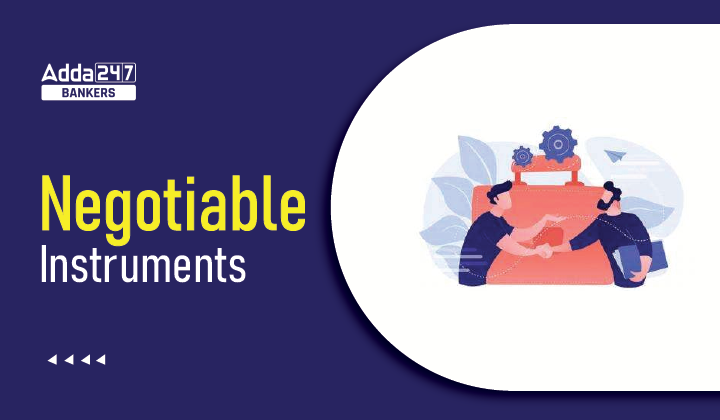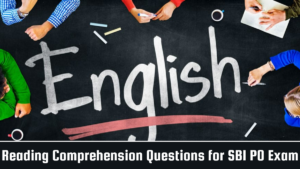Table of Contents
Target 30+ is series of static awareness in context of current affairs. This will support your preparation along with the power capsule provided by our team. In this article we are discussing about Negotiable Instruments.
What is a Negotiable Instrument?
Negotiability means transfer of an instrument from a person / entity to another person / entity. The transfer should be without restriction and in good faith.
What are the types Of N. I. Transactions?
Most of the negotiable instruments transactions can be categorized into three parts. However, there are no explicit statements that it is limited or it must be specified into only three parts. The railway receipts or the delivery orders are also common examples of negotiable instruments.
- Promissory notes-This transaction generally takes place between the debtor and the creditor. The debtor creates the instrument promising the amount of money on a specified date.
- Bills of Exchange– This is just the opposite of the promissory notes as this is an order from the creditor to the debtor. Here, the creditor makes the instrument that instructs the debtor to pay the payee a certain amount of money. The bill is created by the creditor.
- Cheque- This is just one of the forms of bill of exchange. In this case, the drawee is a bank and such cheques are payable on demand. The bank is instructed by the debtor to pay a certain amount of money to the assigned payee.
What is Negotiable Instruments Act 1881?
Negotiable Instruments Act 1881 had been passed in 1882 and was modified in 1989 and 2002, as some more sections were added into the age old law. This act is applicable in entire India , including Jammu & Kashmir. J & K was brought in the ambit of the act in 1956. The act has provisions of Negotiable Instruments such as Promissory Notes, Checks, Drafts , Bills of exchanges etc.
Note the following:
- The NI Act has 147 sections.
- Currency Note is not a negotiable instrument as per Section 21 of the Indian Currency Act.
- Section 4 deals with promissory notes
- Section 5 deals with Bill of Exchange
- Section 6 deals with Cheque
- Section 9 deals with holder and holder in Due course.
- Section 15 deals with Endorsements
- Various other sections such as 123-131 deal with crossing of cheques.
Negotiable Instruments (Amendment) Bill, 2017:
Key Features of Bill
- Interim compensation:
- The Bill inserts new Section 143 A in parent Act to allow court trying offence related to cheque bouncing to direct drawer (person who writes cheque) to pay interim compensation to complainant.
- This compensation may be paid under certain circumstances, including where drawer pleads not guilty of accusation.
- It will not exceed 20% of cheque amount and will be paid by drawer within 60 days of trial court’s order to pay such compensation.
- Deposit in case of appeal:
- The Bill inserts another new Section 148-A in the parent act specifying that if drawer convicted in cheque bouncing case files appeal, appellate court may direct him to deposit minimum of 20% of fine or compensation awarded by trial court during conviction.
- This amount will be in addition to any interim compensation paid by drawer during earlier trial proceedings.
- Returning interim compensation:
- In case drawer is acquitted during trial or by appellate court, then court will direct complainant to return interim compensation (or deposit in case of an appeal case), along with interest.
- This amount will be repaid within 60 days of court’s order.
Target 30+ in General Awareness :SARFAESI Act
Target 30+ in General awareness : Rupee vs Dollar Exchange Rate
Target 30+ in General Awareness: NARCL
Recent Posts
| Current Affairs April 2022 | |




 GA Capsule for SBI Clerk Mains 2025, Dow...
GA Capsule for SBI Clerk Mains 2025, Dow...
 The Hindu Review October 2022: Download ...
The Hindu Review October 2022: Download ...
 Reading Comprehension Questions for SBI ...
Reading Comprehension Questions for SBI ...





